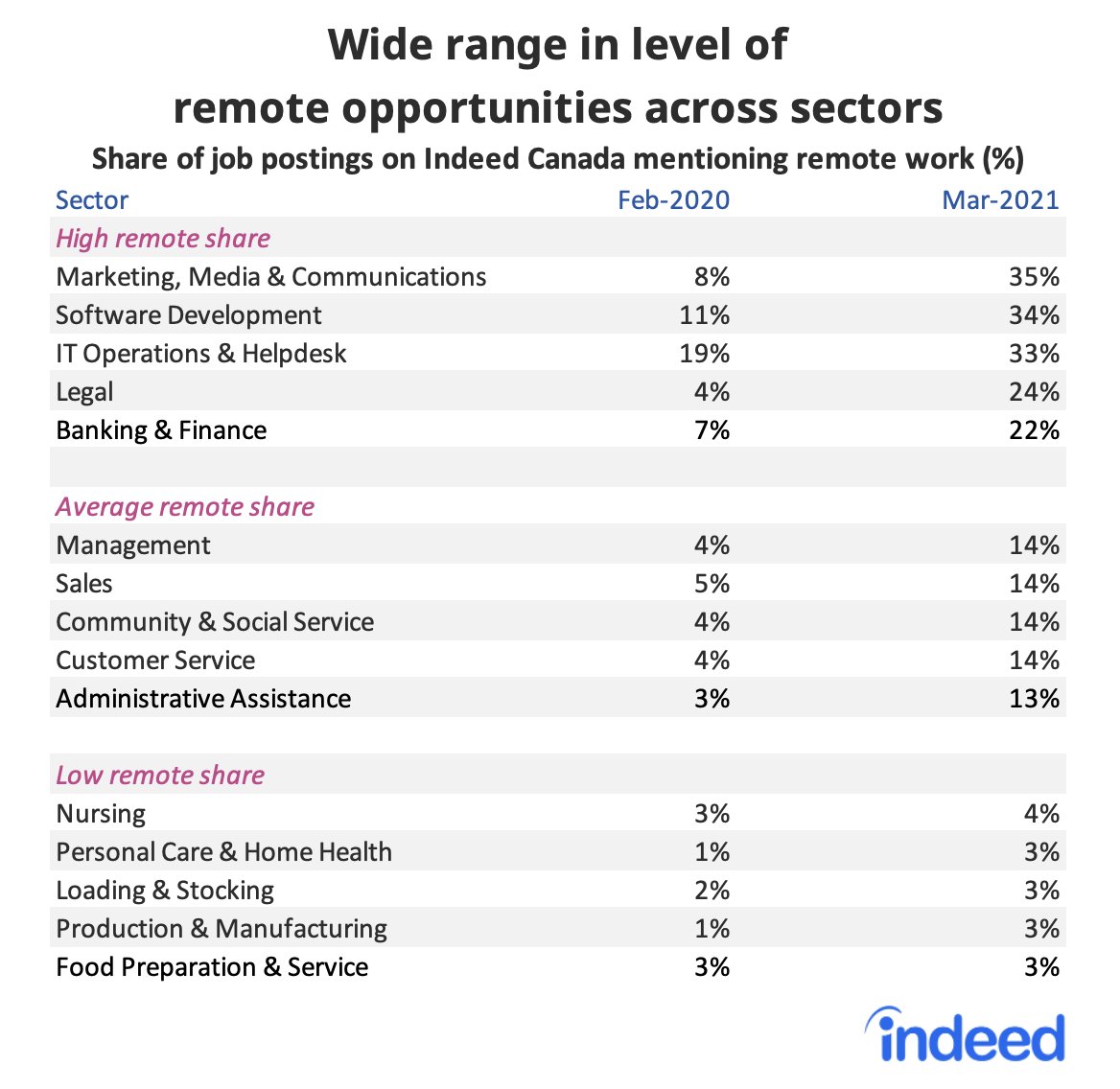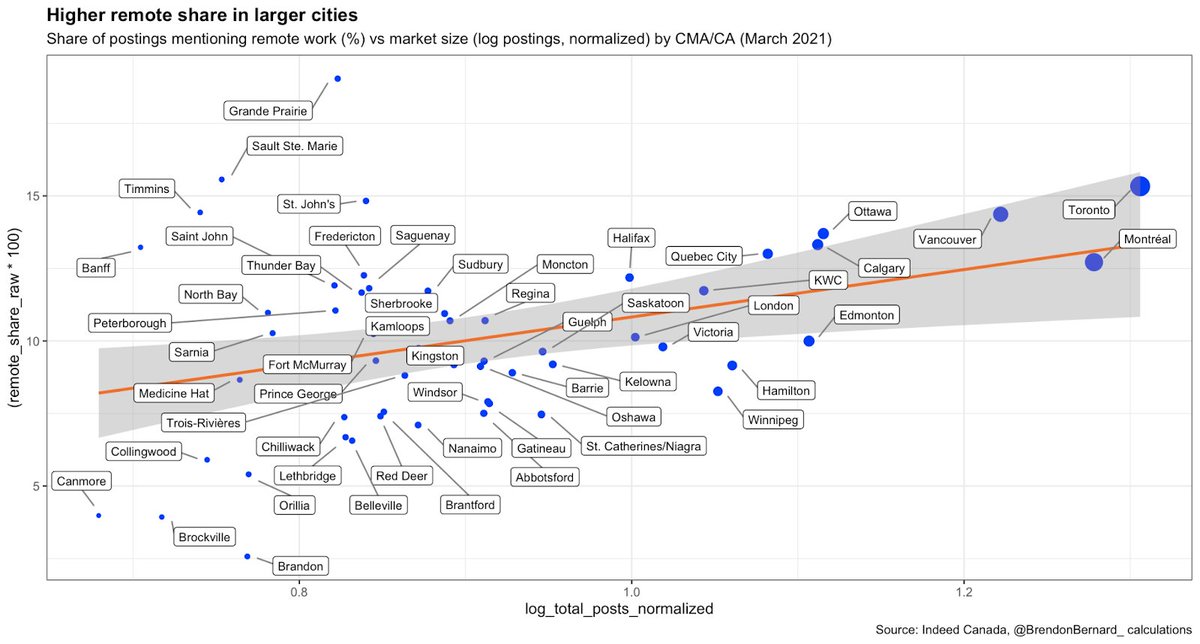Some 11.4% of job postings on @IndeedCanada in March mentioned remote work, nearly triple their pre-pandemic share. In my latest report, I look at:
What types of jobs offer remote work?
Where are they located?
How much of the rise is here to stay? (1/8)
https://www.hiringlab.org/en-ca/2021/04/28/remote-job-postings-triple-pandemic/">https://www.hiringlab.org/en-ca/202...
What types of jobs offer remote work?
Where are they located?
How much of the rise is here to stay? (1/8)
https://www.hiringlab.org/en-ca/2021/04/28/remote-job-postings-triple-pandemic/">https://www.hiringlab.org/en-ca/202...
We track remote work opportunities by looking at job descriptions of postings on Indeed, and tallying those featuring terms like “remote” “work from home” and “télétravail”.
The % of jobs mentioning remote work increased after the pandemic started, and have climbed since (2/8)
The % of jobs mentioning remote work increased after the pandemic started, and have climbed since (2/8)
Two sectors standout in offering remote work: (1) the world of marketing, design, media, and communications, and (2) tech.
Others have also seen major increases, but not to these levels. And of course, some jobs can’t be done remotely. (3/8)
Others have also seen major increases, but not to these levels. And of course, some jobs can’t be done remotely. (3/8)
Discussion of remote work has often focused on big, expensive cities, and the ability of white collar workers to move away from their current workplaces. Consistent with this, mentions of remote work are generally more common in larger metros, esp. Toronto and Vancouver. (4/8)
However, the size-remote relationship is really about different job mixes: big cities have higher remote shares because white collar jobs are more common there.
After adjusting for job mix, employers in smaller cities are often just as likely to mention remote work. (5/8)
After adjusting for job mix, employers in smaller cities are often just as likely to mention remote work. (5/8)
In some cases, small-city employers mention work more often than in big metros. E.g. about ⅓ of software engineering postings in TO and VAN mention remote work, while the share is +45% in London, Saskatoon, and Victoria. (6/8)
This suggest many tech employers in "thin" labour markets are offering remote work to expand their candidate pools.
However the footprint of remote-software jobs is still larger in TO/VAN because the tech sector itself is much larger there. (7/8)
However the footprint of remote-software jobs is still larger in TO/VAN because the tech sector itself is much larger there. (7/8)
That& #39;s a brief rundown of the state of remote job opportunities today. Where are things headed? Stay tuned, or read the post! (8/8) https://www.hiringlab.org/en-ca/2021/04/28/remote-job-postings-triple-pandemic/">https://www.hiringlab.org/en-ca/202...

 Read on Twitter
Read on Twitter





